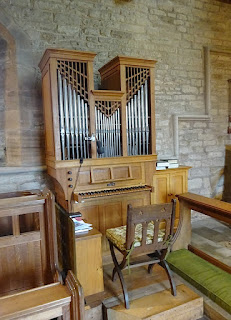One of the great things about not being allowed to go anywhere is that you can go anywhere.
There was a time when being sent to your room in solitary shame meant being cut off from the world. Now, without the prospect of another person sharing the room with me for many weeks, I’m able to travel, meet, converse and experience as I wish. If only it were real, I keep reminding myself. Because it isn’t.
Good Friday finds me taking a virtual stroll past the bookshops on the left bank, crossing the Seine and heading through the imposing doors of Notre Dame. All thanks to live-streaming of course.
It’s a year, give or take a few days, since this familiar Paris view could be seen on any TV screen around the world enveloped in the flames of the unthinkable fire that turned it from a symbol of faith and history into a blackened, smoking ruin, its spire and roof gone for ever.
It was a truly terrible time, the closest many of us will get to understanding what it was like to wake up the morning after the bombing of Coventry. History is, it would seem, not there forever.
An overwhelming tidal wave of support doused the flames somewhat and, a year on, the work is continuing - although it seems to have moved from the uplifting community stage to the bickering politician stage. Today represents a rare chance to take a look inside.
Because of the nationwide French lockdown, only seven people attended the service in person. The annual observance of Holy Week in all its pomp, a fixture on the catholic world’s calendar, is for the most part off or forced to find new arenas.
For the short service the cathedral’s archbishop symbolically brought with him the fabulous golden crown of thorns snatched from flames. This was supposed to be a moment when the priceless relic overcame the devastation of the blaze. It may have done that, but the people chosen to transport it have yet to come through their own equally devastating challenge. Rescued and restored it currently lives elsewhere.
Planned as a veneration offering the chance to reflect on the fire, the year of restoration and the current pandemic, we also enjoyed readings from a variety of poets read by two stars of the French acting community. Music came entirely from a solo violinist, a haunting voice in the cavernous space.
It was an odd sight throughout, as many of these live streamed services seem to be. The clerical contingent of four arrived complete with hard hats - this is a construction site after all - to be met by the trio of performers clad in full anti-contamination suits and Wellington boots. Even in these other-worldly times, nobody does costumes quite like the Catholic church.
The service - fine readings and moving address testing my surprisingly still workable understanding of the french language - takes place at the foot of a giant golden cross halfway down the cathedral. Behind it scaffolding and damaged stonework extend upwards. Close-up shots of surviving windows and artefacts tail off into a dark, smoke-stained gloom you can almost smell through your computer screen. There’s still a lot to be done Mr Macron.
First the building and now the people who treasure it, everything has to prove it can endure whatever time decides will be put in its way. I’m sure we will one day see far better times for the cathedral and its worshippers but at the moment, with thousands being added to the death toll every day, it’s as great a test of faith as you can imagine.




























